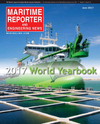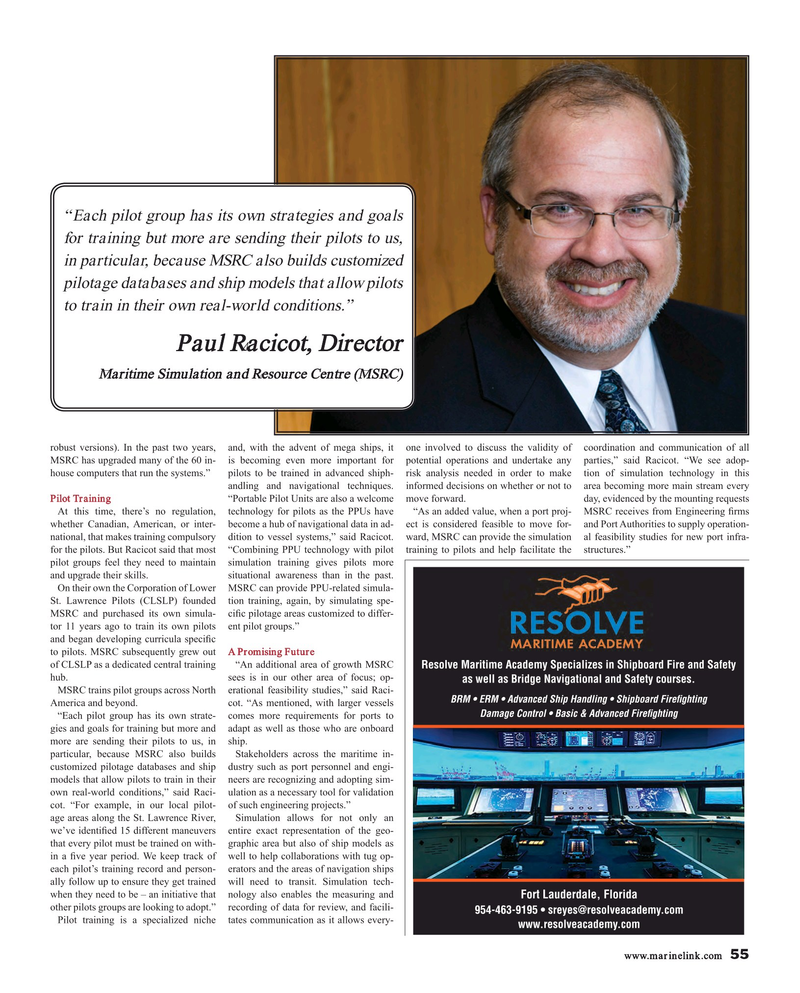
Page 55: of Maritime Reporter Magazine (June 2017)
U.S. Navy Quarterly
Read this page in Pdf, Flash or Html5 edition of June 2017 Maritime Reporter Magazine
“Each pilot group has its own strategies and goals for training but more are sending their pilots to us, in particular, because MSRC also builds customized pilotage databases and ship models that allow pilots to train in their own real-world conditions.”
Paul Racicot, Director
Maritime Simulation and Resource Centre (MSRC) robust versions). In the past two years, and, with the advent of mega ships, it one involved to discuss the validity of coordination and communication of all
MSRC has upgraded many of the 60 in- is becoming even more important for potential operations and undertake any parties,” said Racicot. “We see adop- house computers that run the systems.” pilots to be trained in advanced shiph- risk analysis needed in order to make tion of simulation technology in this andling and navigational techniques. informed decisions on whether or not to area becoming more main stream every
Pilot Training “Portable Pilot Units are also a welcome move forward. day, evidenced by the mounting requests
At this time, there’s no regulation, technology for pilots as the PPUs have “As an added value, when a port proj- MSRC receives from Engineering ? rms whether Canadian, American, or inter- become a hub of navigational data in ad- ect is considered feasible to move for- and Port Authorities to supply operation- national, that makes training compulsory dition to vessel systems,” said Racicot. ward, MSRC can provide the simulation al feasibility studies for new port infra- for the pilots. But Racicot said that most “Combining PPU technology with pilot training to pilots and help facilitate the structures.” pilot groups feel they need to maintain simulation training gives pilots more and upgrade their skills. situational awareness than in the past.
On their own the Corporation of Lower MSRC can provide PPU-related simula-
St. Lawrence Pilots (CLSLP) founded tion training, again, by simulating spe-
MSRC and purchased its own simula- ci? c pilotage areas customized to differ- tor 11 years ago to train its own pilots ent pilot groups.” and began developing curricula speci? c to pilots. MSRC subsequently grew out A Promising Future of CLSLP as a dedicated central training “An additional area of growth MSRC
Resolve Maritime Academy Specializes in Shipboard Fire and Safety hub. sees is in our other area of focus; op- as well as Bridge Navigational and Safety courses.
MSRC trains pilot groups across North erational feasibility studies,” said Raci- "2-

 54
54

 56
56
